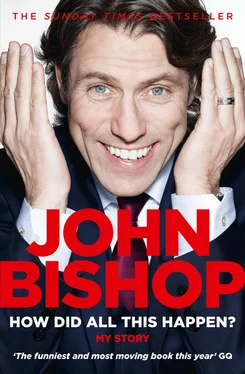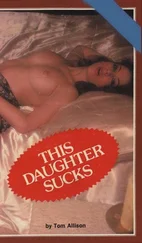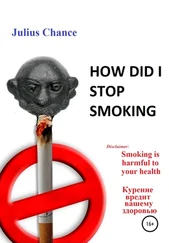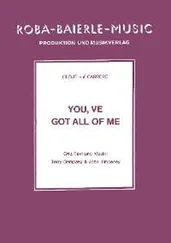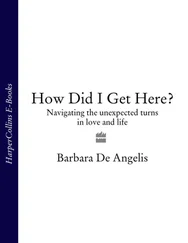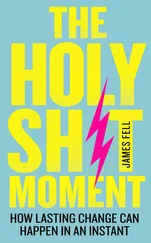Football was great, but cricket was also an option. People used to spray-paint cricket stumps onto the walls of end-of-terrace houses around the estate. This meant that we always had cricket stumps, but it also meant that we always had cricket stumps that never moved. This caused untold arguments because the bowler and the fielders would often claim that the stumps had been hit, but with no physical proof of this the batter nearly always argued against the decision. This generally caused a row that resulted in a stand-off, which, more often than not, the batsman won – he was holding a cricket bat, after all. I think this is probably the reason why I don’t like cricket – any game where as a child you are threatened with a lump of wood on a regular basis ends up feeling like it’s not worth the hassle.
There was also the odd dalliance with boxing which was something virtually every boy I knew on the estate did from time to time; my cousin, Freddie, achieving some level of success by fighting for England. I didn’t mind fighting as a boy; it was just something we did. My brother Eddie had taken it upon himself to toughen me up, a process that involved him taunting me till I got angry and flew at him, upon which he would then batter me. Older brothers never realise that they are natural heroes to their younger siblings and it was great when Eddie allowed me to hang around with him and his mates, but I would have given anything just to win one of our fights as a kid.
As a child, I would actively seek fights. If I started a new school or club, I would pinpoint the bully in the room and then challenge them to a fight. When I ran out of people in my year at school, I started looking for people a year or two above me. A challenge would be given, an arrangement made and, after school, I would be fighting someone for no reason whatsoever whilst other children stood around and chanted: ‘Zigga-zagga-ooo-ooo-ooo.’ While I never understood what that meant, I also never grasped the concept that by going around looking for a bully to fight I might actually have been the bully, but I did think I was doing the right thing. I was taking on the baddy and more often than not winning, whereupon I would go home and let Eddie know his attempts to toughen me up were working. Eddie, however, would usually say he wasn’t interested and give me a dead leg.
As I type this as an adult, I realise this reads awfully, but that is what life was like on an estate, and none of us thought it should be different. Eddie and I were also acutely aware that my dad had a reputation for being a tough man. He had been taught as a child by his mother, whose matriarchal influence on the family was immense, that you had to stand up for yourself. My nan outlived three husbands and three of her own nine children, and her life and that of her children was one of hardship and battles. Some she won and some she didn’t, but the fight was always there till the very end. She must have been in her seventies when I had to restrain her from getting involved in a fight that had broken out in the room next door to my cousin Gary’s 21st birthday party in Rainhill.
As I grew up and moved in different circles, I learnt that violence very rarely resolves anything and I began to associate with more and more like-minded people. The extent of this change became apparent when I received a call from my dad to say that there was a need for a ‘show of strength’ at my nan’s house. At the time, the council had moved a young family next door and they were basically scumbags: one mum, multiple children and two dads – the kind of neighbours from hell you see on television programmes where you can’t believe such low-grade people exist. There had been a row, and a threat made to my uncle, Jimmy, and my nan, so it was decided that uncles and cousins should arrive at the house to ensure it was known they would face more than just two pensioners should the arguments escalate.
It was a Sunday night and, as a young father, I had been looking forward to going to the pub with my mates. Instead, I asked them to come with me. We arrived at the house and walked in to find it full of the adult men in the family. I looked around the room at battle-ready faces of cousins and uncles, and then back at my mates – Paul, Mickey Duff and Big Derry Gav – and realised that if it kicked off I had perhaps not brought the best team. Paul was an accountant whose hair was rarely out of place; Big Derry Gav got his name from being from Derry, being big and being called Gavin, but as a trainee infant-school teacher the best he could do would be to create weapons from papier-mâchè; while Mickey Duff had perhaps the best contribution to make, if not in the physical sense – he spent most of his time hiding behind my nan – but in the sense that he was the logistics manager in a toilet-roll factory.
As it happened, the police arrived and the situation didn’t escalate. After far too long, the scumbags were moved on, but I have a slight tinge of regret that the success I gained later on had not happened by then, as money and celebrity does bring you the means to resolve such matters. Or the phone numbers of those who can.
Eddie and my dad used to do circuit training in our living room, so I would join them. From the age of seven I found could do more sit-ups than anyone else in the family. This bordered on an obsession for a period, as I would forever be doing sit-ups, one night doing 200 straight, which is a bit mental for a seven-year-old child who is not in a Chinese gymnastic school. We would often then end with a boxing match. This involved my dad going onto his knees and from this position we would hit him, wearing boxing gloves, while he would just jab us away wearing the one glove that was his size. Eddie and I would then spar. One time, Eddie knocked me flat out with a right hook. I got up, dazed, but instead of stopping the session my dad just put on his glove and put Eddie on the floor. We both learnt a lesson that day: neither of us would ever be able to beat my dad.
My dad and his twin brother, Freddie, played football locally, where it was clear they had some form of a reputation. I don’t think they ever sought a fight, but you can tell when people think your dad is hard; it’s just the way people talk when he is around, and the sense of protection that we had as a family when we went anywhere with him. I still have that feeling now, and he is 72. My dad always told us as kids that you should never look for trouble, but never walk away, particularly if you’re in the right. He also said we should never use weapons (Uncle Freddie had nearly bled to death as a youth after being stabbed in the leg), never kick someone when they are down, and, if you’re not sure what is going to happen next, you’re probably best hitting someone.
I think for the life we lived at that time that was sound advice, but it’s not a conversation I have had to have with my sons – they have not lived the same life. To be fair, I have not lived the life that my dad lived, but he could only pass on what he had learnt. My nan had been married before to a Mr Berry and had had three sons: Charlie, Billy and Jimmy. By the time Mr Berry died, Charlie had also died, aged nine, of diphtheria, and been buried in an unmarked pauper’s grave, and my uncle, Billy, had lost a lung to TB. She then married my dad’s father, Fred Bishop, and had Janet, Mary, Edna, Carol and the twins: my dad and Freddie. With eight children in post-war austerity, things were inevitably tough – in one of the few photographs my dad has of himself and Freddie as children, only one of them has shoes on. There had been only one pair of shoes to go around, so they had a fight and the winner wore them for the picture.
Although my mum lived just around the corner, growing up, she never seemed to suffer the same degree of hardship. She was one of three for a start, with older siblings (in the form of John and Josie), and fewer mouths to feed makes a difference to any family. Her mum and dad divorced and her father died the same year I was born, which is one reason why I am named after him. Her mum, my other nan, was married to Granddad Bill, a caretaker of a block of flats in Toxteth, for all the time that I knew her. As children, Eddie and I would play for hours around the flats with Stephen, my uncle, who was in fact not much older than us. Pictures of my mum in her youth reveal a slim, beautiful, dark-haired girl with plaits who grew to be a slim, beautiful woman with a beehive. My mum has always stayed in shape, and I would guess that her dress size has hardly changed in the more than fifty years that she has been married to my dad.
Читать дальше
